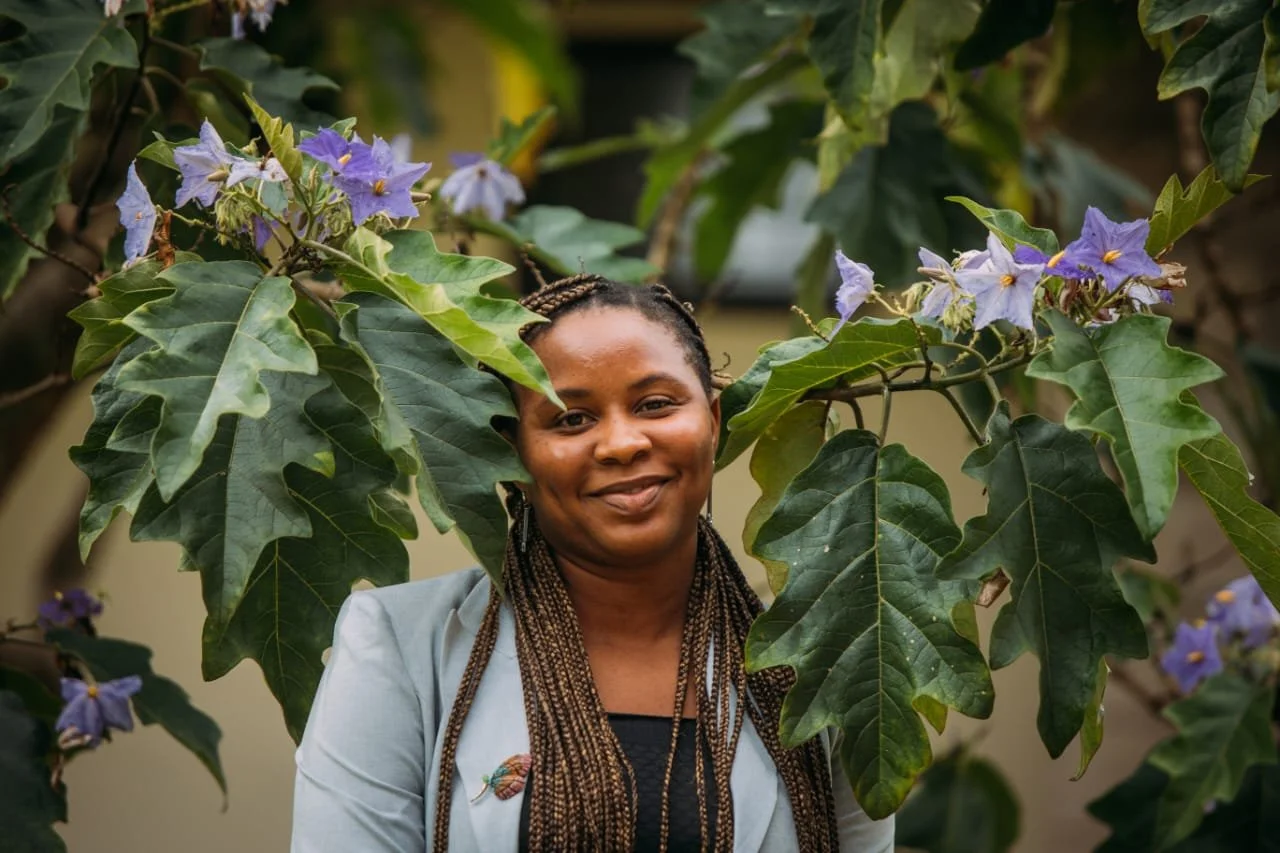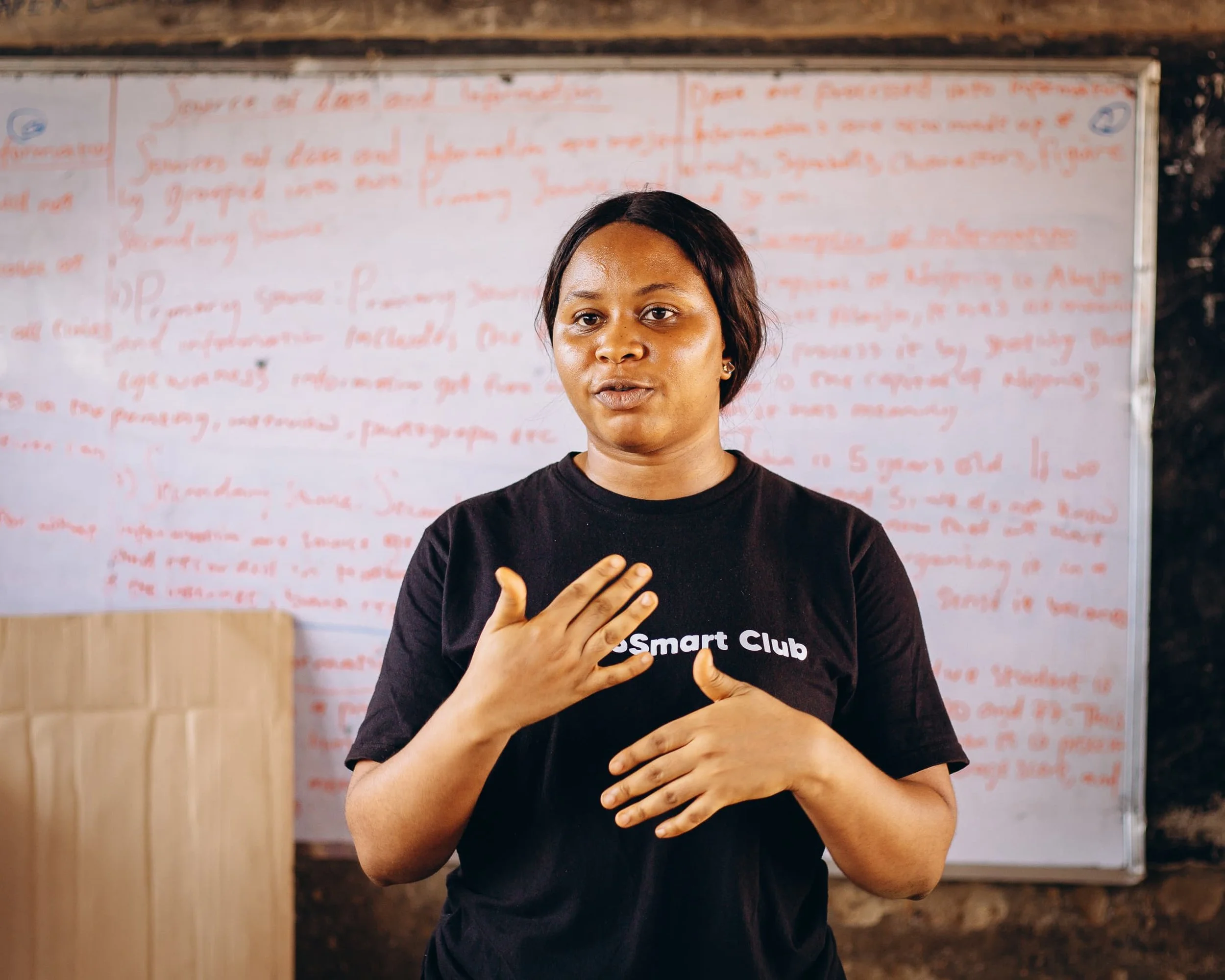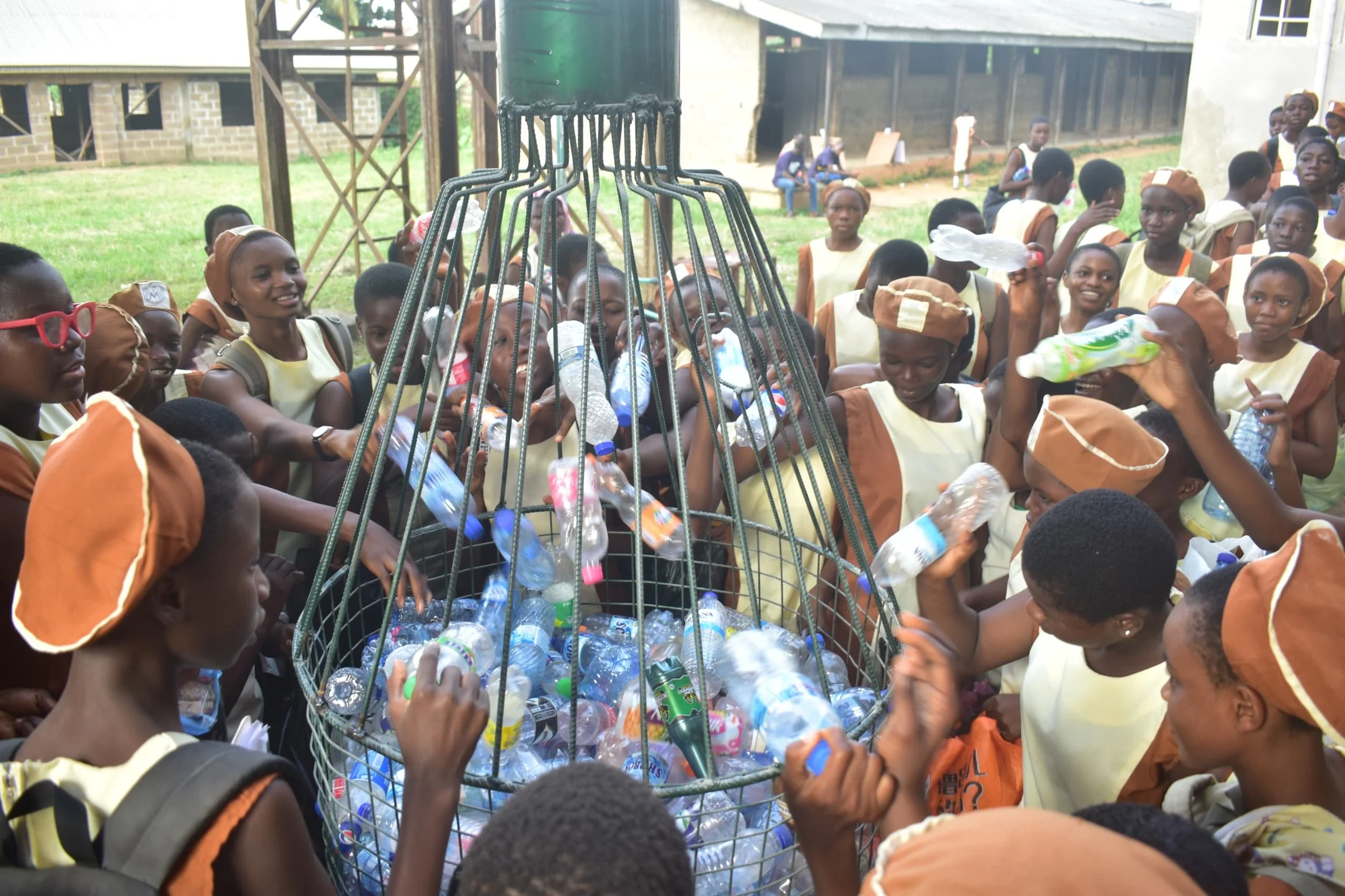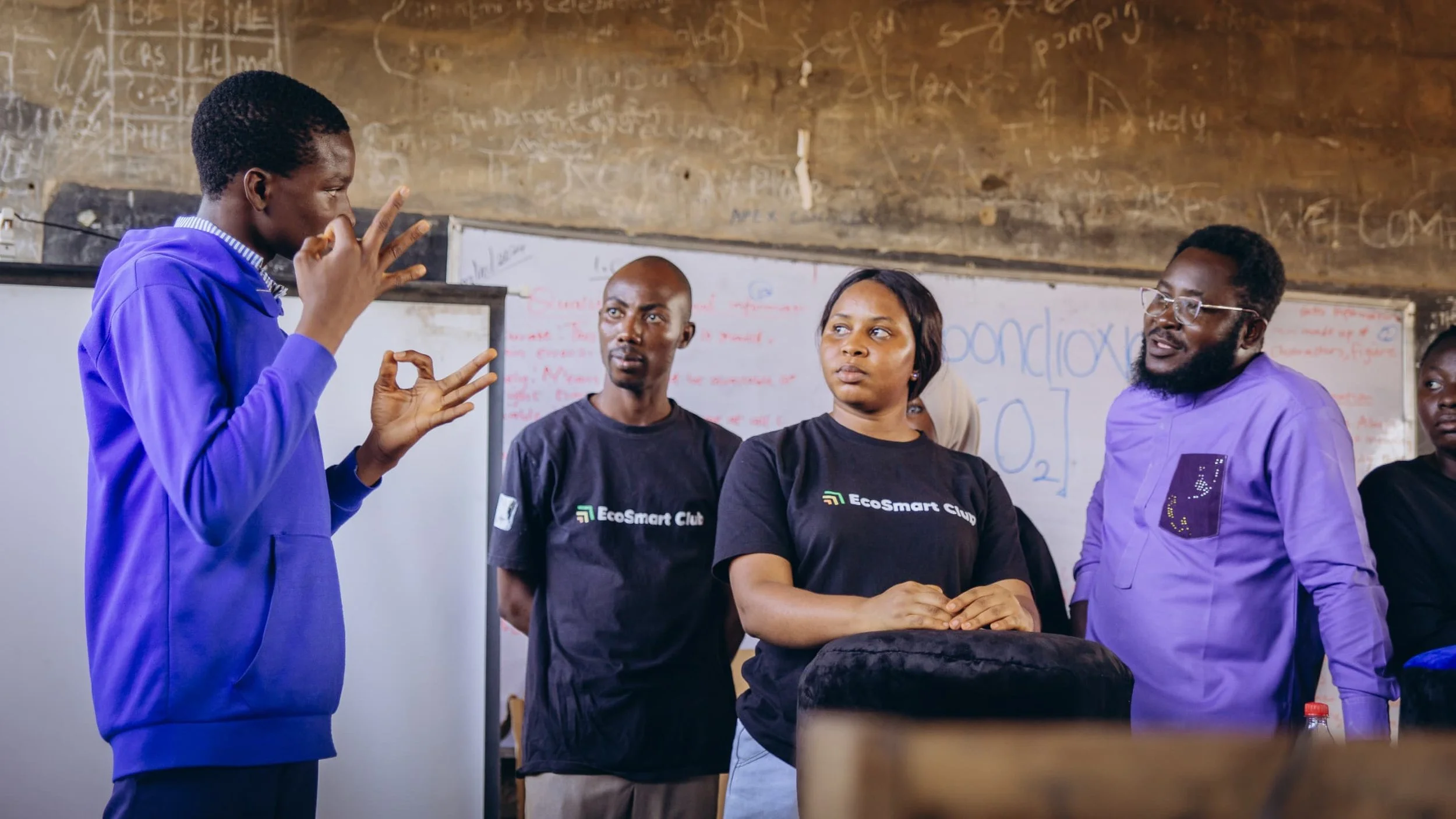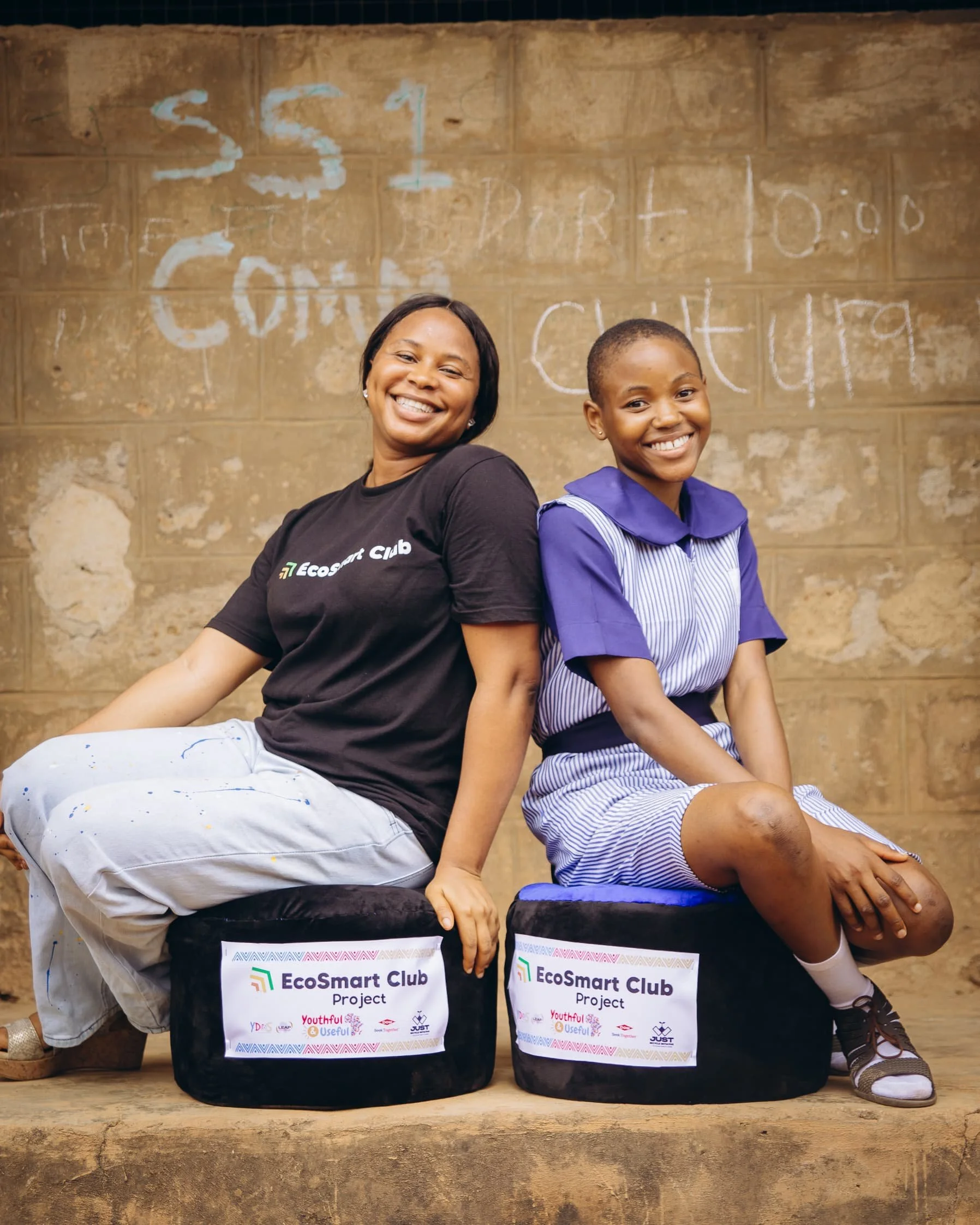Activist Spotlight: Hannah Omokhaye
An interview with Hannah Omokhaye – a Nigerian climate educator equipping youth to lead the way to a just future.
Hannah Omokhaye is a Nigerian climate educator and project manager specialising in gender, disability, youth inclusion, and capacity building within the environmental sustainability sector. She is passionate about fostering meaningful youth engagement and empowering communities to drive a just and sustainable future.
Through her initiative, EcoSmart Club, she establishes environmental clubs in schools, trains teachers, and empowers young people to lead climate action. Hannah has been recognised for her contributions to climate action and was a 2024 African Climate Alliance Ambassador.
We caught up with Hannah to ask her a few questions about her journey and work to equip young people with the skills and confidence to create a more just world.
When did your change-making journey begin?
My spirit for justice was ignited after I experienced flooding in my community in 2010. The flood had taken away all of our belongings, covered the pathways to my school and a lot of my community members suffered a great loss.
When I was listening to the adults talking then, they kept on saying this could have been prevented if the river pathway in my community had been broadened and if people hadn't clogged the flood. So I was furious but there was nothing I could do. After a while, I left home for school, and then my youth service. I was exposed to another life and my capacity to create change had been enhanced. I served as the president of the SDGs community service group then and did a lot of projects with school girls and a town hall for people with disabilities.
But a key moment that birthed EcoSmart club was when I came back to my community in 2022 and I met the community in a heap of dirt. It has always been like that, but I had more power to change the narrative. So I designed the “End Waste in Odo-Ona” project where I brought together young people in my community, alongside elders, to clean it up.
What are the main ways in which the climate crisis is affecting Nigeria?
The climate crisis is affecting Nigeria in several ways. Rising temperatures are causing heatwaves across the country, which affect people's health, livelihoods, and productivity. In 2024 alone, the National Emergency Management Agency reported over 320 deaths and 1.3 million people impacted by floods in 34 out of 36 states.
In the North, drought conditions continue to worsen, leading to acute food scarcity and threatening the livelihoods of many Nigerians. As people increasingly rely on natural resources for survival, especially for cooking, it’s negatively impacting our biodiversity and health. This situation demonstrates the ripple effect of the climate crisis. That's why we must educate more people and help communities build resilience to navigate these challenges.
You are the founder of the EcoSmart Club. What is this project all about?
EcoSmart Club is a youth-led community dedicated to empowering young Nigerians with the knowledge, skills, and networks needed to build green skills and lead climate action. Our work spans several areas, including youth-led climate leadership, green skills, ecofeminism, disabilities and climate change, education for sustainable development, and circularity.
We work with secondary school students to establish clubs that have reached over 3000 students across Nigeria. Our goal is to expose these students to green careers and inspire them to pursue them.
Additionally, as a community of young people, we implement environmental projects that benefit both people and the environment.
The biggest lesson I’ve learned from founding EcoSmart Club is the importance of collaboration and community engagement. The work we do is deeply rooted in the strength of local partnerships and the passion of young people.
You’ve also launched your EcoSmart Club curriculum for schools! Can you tell us more about this and the impact it has had?
The EcoSmart Club curriculum is an open-access program supported by the ACA Ambassador Program. It consists of eight sections and 25 topics, covering understanding climate change and biodiversity to green careers, climate justice, mental well-being, and soft skills. Currently, the curriculum is being used in four schools for club activities. It’s been rewarding to see other youth-led projects also using the curriculum for their outreach efforts.
In 2024, we partnered with Eureka Recycling to teach 950 students and 11 teachers. This year, are also collaborating with other youth-led initiatives like Eco Village Nigeria and EcoAiders to incorporate the curriculum into their own programs.
Let’s talk about eco-ableism. What have you learnt about how we teach climate action to people of different abilities at EcoSmart Club?
Eco-ableism is the marginalisation of people with disabilities in climate action. People with disabilities (PWDs) are disproportionately affected by the climate crisis due to existing challenges, discrimination, and inequity in society. They are also the least represented and easily forgotten part of society when it comes to climate decision-making.
Our flagship project, the GreenAbility project, focuses on organising young PWDs to understand climate change, lead climate action, build green skills, and prepare for climate disasters. Through this initiative, we aim to create a strong community of PWDs who can advocate for their rights in the climate movement.
We are also producing a handbook on climate disasters for PWDs in Nigeria and providing disaster kits to 30 PWDs this year.
Although I am not a PWD myself, this advocacy is important to me because, as a climate justice activist, I believe that the climate crisis will increase the number of disabled people. Whether due to the environment or age, we need to build a society that can help everyone build resilience, adapt, and thrive in the face of climate challenges. I am committed to raising my voice for that cause.
What are a few of your favourite examples of Afrocentric climate solutions?
One of my favorite Afrocentric climate solutions is the Paro business. It’s a long-standing, women-led business common in West Africa where people exchange used clothes for items like plastic bowls or money. This practice involves recycling and upcycling clothes, preventing waste from ending up in landfills.
Growing up, I saw my mother engage in this exchange, but sadly, climate change is now affecting this business as many of the women involved also need to hawk through the hot sun to get to their customers. A lot of people also do not practice the culture of recycling as before. Through our initiative, we hope to revive and support this sustainable practice.
What are green skills? And where can young people begin to develop them?
Green skills are the knowledge and abilities needed to drive the transition to a green economy. These can be technical or non-technical and range from project management, critical thinking, system building, adaptability, and innovation to sustainable farming, green building construction, and solar technology.
Essentially, any skill used to promote environmental sustainability counts as a green skill. Young people can begin developing these skills by understanding what the green transition is about and exploring how they can adapt their existing abilities to support environmental sustainability. There are also online courses online that can help them get started.
What is something you learnt in your journey as an ACA Ambassador that you still carry with you today?
One of the most important lessons I’ve learned as an ACA Ambassador is the need to prioritise my well-being as a changemaker and to take time to rest. I also learned the value of check-ins before meetings, a practice I’ve continued with my own team to ensure that we stay connected, motivated, and balanced in our work.
What is a misconception of the climate justice movement that you want to debunk?
One common misconception is that climate justice is only about the environment. In reality, climate justice addresses a wide range of intersectional issues, including the historical marginalisation of women, exploitation under capitalism, human rights, and the inclusion of vulnerable groups. Climate justice is a holistic movement that encompasses social, economic, and environmental justice. As a climate justice activist, you cannot be narrow-minded. You have to consider the broader implications and address the systemic inequalities that exacerbate climate impacts.

